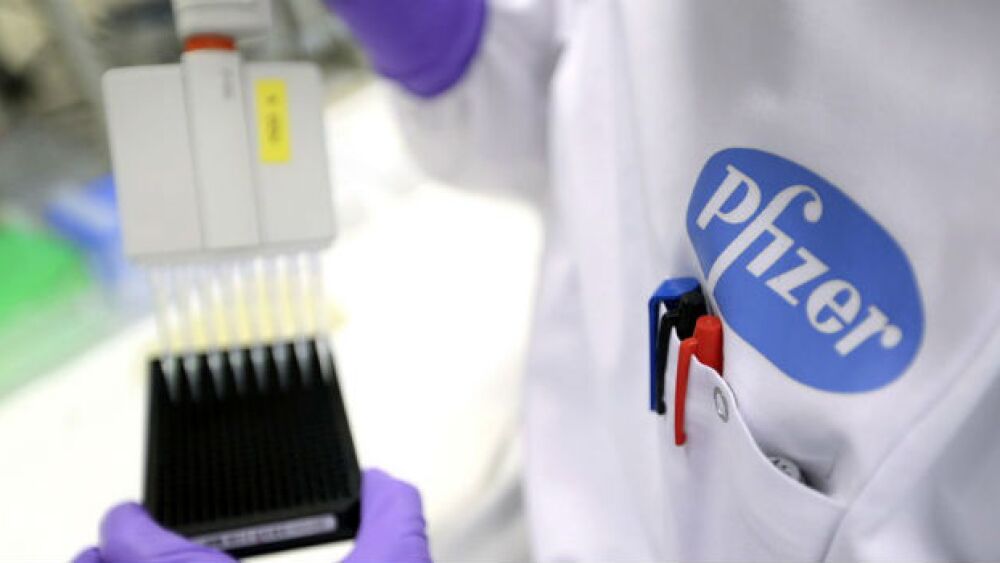The FDA accepted the BLA for and granted Pfizer’s maternal RSV vaccine candidate priority review.
Company Courtesy
Pfizer notched another win in the race for an RSV vaccine Tuesday, as it announced the FDA has accepted the Biologics License Application for its maternal RSV vaccine and granted the candidate priority review.
The regulator set an action date of August 2023. Depending on its decision, RSVpreF could become the first vaccine administered to pregnant women to prevent RSV in infants, but only if it beats its competitors to the finish line.
11 RSV preventative options are being actively studied in U.S. trials, according to an RSV clinical trial tracker published by PATH. Of those, four are designed for young children, but there are only two other candidates that have rivaled Pfizer’s in the race to approval - one being developed by GSK and the other by AstraZeneca and Sanofi.
AstraZeneca and Sanofi’s candidate, nirsevimab, was the first long-acting antibody or prevention to be accepted for review by the FDA in January. The regulator stated the action date will be in the third quarter of 2023.
GSK was a top contender until it paused the trials studying its candidate due to safety concerns in February 2022. The British pharma has yet to continue the trials.
AstraZeneca and Sanofi’s candidate, nirsevimab, was the RSV prevention candidate for young children to be accepted for review by the FDA in January. The regulator stated the action date will be in the third quarter of 2023.
Nirsevimab is an investigational, single-dose antibody injection designed to protect infants from birth through 24 months of age. The submission was based on results from the Phase III MELODY and Phase II/III MEDLEY trials in which the candidate showed consistent protection of about 80% in reducing medically attended lower respiratory tract infections.
Pfizer’s submission of RSVpreF was based on data from the Phase III MATISSE trial studying the vaccine’s efficacy in infants from birth to six months. In November, the company announced data from the trial showed an efficacy rate of 81.8% against severe medically attended lower respiratory tract illness due to RSV in the infants studied.
Complete data from the trial will be presented on Feb. 23, both to the CDC’s Advisory Committee on Immunization Practices (ACIP) and at the ReSViNET Foundation’s 2023 Global Conference.





